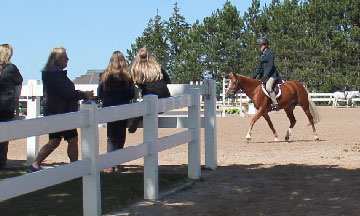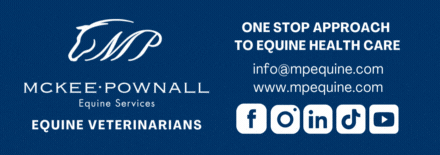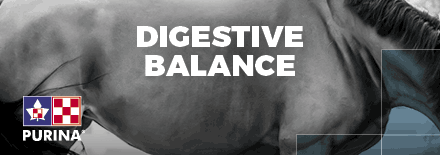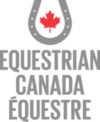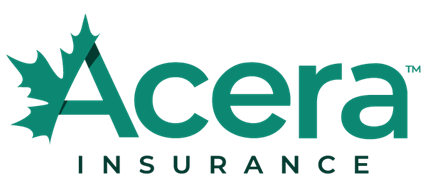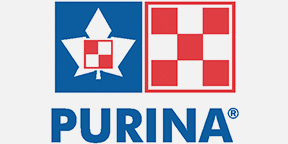The sample collected from the horse which had briefly attended the CIEC last week was confirmed as EHV1 positive. All sanitary and isolation precautions should be maintained as recommended and outlined in the information below.
The veterinary team and organizing committee at the Canadian Interprovincial Equestrian Championships (CIEC), held Oct, 1–5, 2014 at the Blainville Equestrian Park in Blainville, QC, were informed on Oct. 2, 2014, that two horses which had been presented for potential participation as borrowed horses had come from the same farm as a horse which had to be hospitalized at the University of Montreal Veterinary School’s isolation facility for a neurologic disease and which consequently tested positive for equine herpes virus.
As these two horses were found unsuitable by their prospective riders /teams, they were returned home the same day, October 1, 2014. As part of the Clean Sport and Biosecurity best practice pilot project held at the CIEC, these two horses received a pre-competition arrival examination and had no fever or sign of disease. They were briefly stabled in the Quebec/leased horse designated barn. Nasal swabs were taken of these two horses at their home barn on Oct. 3, 2014. One of the horses was positive for EHV. Consequently, through briefings with all team chefs, appropriate biosecurity measures were recommended including twice daily body temperature checks for all horses on the grounds.
Horses were monitored throughout competitions by the CIEC veterinary team under the supervision of FEI veterinarian Dr. Yves Rossier and no sign of disease or fevers were observed.
In view of the facts relating to potential equine herpes neurologic disease, circumstances particular to the CIEC situation—horses on the grounds for a few hours, no sign of disease, afebrile, separate stabling for out of province horses, and rapidity of diagnosis—the following main recommendations were made:
- direct travel home without overnight stopovers is recommended whenever possible. Other horses should not be picked up during transport,
- clean and sanitize the trailer after shipping and before shipping other horses,
- upon returning to their stables, horses should isolated with daily body temperature checks morning and night for a minimum of 14 days,
- isolated horses should have no direct contact with other horses, should not be turned out with other horses, use specific water and feed bowls and should be mucked out last, and
- travel restrictions should be observed for a minimum of 14 days during which absence of fever and of clinical signs as well as negative serial nasal swabs for EHV must be observed. Otherwise, a 28 day quarantine period is recommended.
The Clean Sport and Biosecurity best practices were held as a Fédération équestre du Québec/Equine Canada education initiative for all participants, coaches and provincial representatives. The pilot activities included a pre-competition in barn arrival examination, a veterinary inspection and jog for all participating horses and a Clean Sport seminar based on the Canadian Coaching/EC teaching module. These pre-competition activities were conducted by a veterinary team from the Université de Montréal’s Faculté de Médecine Vétérinaire led by FEI veterinarian, Dr. Rossier.
